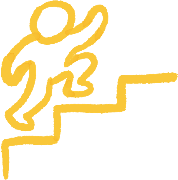How We Work With Children
Arigatou International Geneva has developed a unique approach to ethics education that empowers children to make positive contributions to their societies by strengthening their critical thinking, ethical reflections and ability to work collaboratively with others.
The Ethics Education Approach provides educators in formal and non-formal education with concrete tools for designing, planning, delivering and monitoring educational programs for children and youth to learn to live together with people of different cultures, religions, beliefs and socio-economic groups. It provides a transformative pedagogy that is child-centered, and ensures quality and empowering learning experiences for children.
Our work with children is informed and based on the Convention on the Rights of the Child, supporting the protection and empowerment of children.
Creating safe learning environments for children
Safe learning environments are welcoming and embracing spaces that enable the active, inclusive, genuine and interactive participation of children, youth, and facilitators. Safe learning environments create the adequate conditions to support and encourage participants to be themselves, share, express their thoughts, feelings and beliefs, and connect.
Our training programs provide practical tools for educators to learn to create safe spaces and learning opportunities, free from any form of violence, where children can fully express themselves, participate, engage with people of different cultures and beliefs, and become actively engaged in our work and their communities.
Providing opportunities for children to develop to their fullest potential
We equip educators with the tools, skills and knowledge to nurture children’s critical thinking, imagination, critical consciousness and self-driven learning. Our educational approach helps improve children’s capacity to put themselves in another’s shoes and become aware of their individual and collective responsibilities.
We create spaces to enhance children’s meaningful participation, involving them in the design of our programs and engaging them in the development of our activities. We use participatory and collaborative learning methods and horizontal approaches to learning that create dialogue with children as co-creators of knowledge.
Empowering children
Children can become agents of change, influencing positive transformations in their communities and the world.
Our educational approach aims to provide avenues for children and youth to act collectively to achieve common goals, building on their individual strengths, appreciating the diversity around them, and nurturing their spirituality. Through our programs, children become aware of issues that affect them and their communities, and feel empowered to develop collective actions to address these issues.
Our work with children is informed and based on the Convention on the Rights of the Child, supporting the protection and empowerment of children.

Creating safe learning environments for children
Safe learning environments are welcoming and embracing spaces that enable the active, inclusive, genuine and interactive participation of children, youth, and facilitators. Safe learning environments create the adequate conditions to support and encourage participants to be themselves, share, express their thoughts, feelings and beliefs, and connect.
Our training programs provide practical tools for educators to learn to create safe spaces and learning opportunities, free from any form of violence, where children can fully express themselves, participate, engage with people of different cultures and beliefs, and become actively engaged in our work and their communities.

Providing opportunities for children to develop to their fullest potential
We equip educators with the tools, skills and knowledge to nurture children’s critical thinking, imagination, critical consciousness and self-driven learning. Our educational approach helps improve children’s capacity to put themselves in another’s shoes and become aware of their individual and collective responsibilities.
We create spaces to enhance children’s meaningful participation, involving them in the design of our programs and engaging them in the development of our activities. We use participatory and collaborative learning methods and horizontal approaches to learning that create dialogue with children as co-creators of knowledge.

Empowering children
Children can become agents of change, influencing positive transformations in their communities and the world.
Our educational approach aims to provide avenues for children and youth to act collectively to achieve common goals, building on their individual strengths, appreciating the diversity around them, and nurturing their spirituality. Through our programs, children become aware of issues that affect them and their communities, and feel empowered to develop collective actions to address these issues.
The Story of Arun
This short film narrates the true story of Arun, a boy from Coimbatore, India who impacted the lives of thousands by initiating a food bank when he was only 14 years old, after participating in the Learning to Live Together program with people of different cultures, religions, beliefs and socio-economic groups.
All with Children
Visit the “All with Children” microsite, and discover how Arigatou International involves children in a meaningful way, ensuring a safe environment, and supporting its partners and volunteers.
Child Safeguarding
Arigatou International has adopted special safeguarding policies, procedures and practices to guarantee that all children we work with are safe. This includes taking preventive measures to ensure our staff, operations, and programs do not harm children; providing appropriate reporting instances, and ability to work collaboratively with others.

